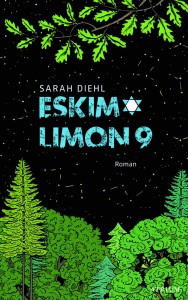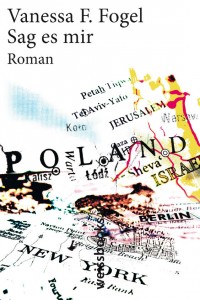Why Lilith Fascinates Our Visitors

View of our permanent exhibition
© Jewish Museum Berlin, photo: Jens Ziehe
One of the tours of the permanent exhibition that I offer regularly is on the subject of women in Judaism. Visitors interested in this topic are usually women’s groups and people already familiar with the essentials of Judaism and Jewish history. I enjoy the lively discussions I have with participants of this tour. When we talk about the life of Glikl of Hameln, Dorothea Schlegel, Albertine Mendelssohn-Bartholdy, and Else Lasker-Schüler, or about Lilith and Eve, we’re also discussing women’s rights – and that means our own rights!
People have heard a wide variety of things about Lilith: “Doesn’t she appear in Goethe’s Faust?” “Lilith is important for fortune telling with cards.” “Adam’s first wife, before Eve.” Some think of Lilith as a threatening ghostly figure, and others named their daughter after her, since she also represents self-determination, independence, unbridled ferocity, and joyous sensuality. Her model of life contrasts with the traditional image of women – in fact, she is Eve’s foil. No wonder that the name Lilith is known above all in feminist circles. → continue reading
When German friends of mine choose to move from Darmstadt, in Hesse, into the surrounding countryside, I shake my head in disbelief. That an Israeli family would leave Tel Aviv not, as many Israelis do, to move to Berlin (see the German-language blog post offering ten tips for Israelis in Berlin), but rather to the tiny Hessian town of Niederbrechen, seems audacious, if not outright absurd. This scenario, however, is the starting point of Sarah Diehl’s debut novel Eskimo Limon 9. The novel depicts a “very particular kind of culture clash,” as the book’s flap announces.

Book cover
© Atrium publishers
Some of the characters are Israelis, and they have little interest in discussing Germany’s past or the history of European Jews.
“The only thing in the Jewish Museum that will remind me of home will probably be the metal detector you have to go through at the entrance.”
The novel’s Israeli father Chen wishes Germans “would associate us with Eskimo Limon instead of six million dead.” The title of the book refers to a film series of the same name, which aired in Germany in the 1980s as Eis am Stil (Popsicle), “one of the few Israeli pop culture phenomena […] familiar to German audiences.” Many assume that the series is Italian, which—as the author of the novel argues—shows how selective Germans’ perception of Israel can be, and how limited their idea of Jewishness often is.
Other characters are natives of Niederbrechen. → continue reading
or “Being who I am”
“The night before I fly to Germany to see my grandfather Mosha, I meet someone, take him home with me, and for the first time in my life, I sleep with a man.”

© weissbooks.w
Frankfurt am Main
This sentence begins the first chapter of the 2010 novel Sag es mir (Tell it to me) by Vanessa F. Fogel. The author was born in 1981 in Frankfurt and grew up in Israel. She introduces the first-person narrator of this autobiographical novel both as a granddaughter and as a confident young woman right from the start. And despite her imminent trip to the sites of extermination – she meets her grandfather in Berlin and they travel together to Poland – her emphasis is on vitality and the joys of living.
The Frankfurt publishing house weissbooks has now taken on another Jewish writer of “the third generation.” Channah Trzebiner is a lawyer, also born in 1981 in Frankfurt, where, unlike Fogel, she still lives. She has written Die Enkelin (The Granddaughter), which is more of “a kind of inner monologue” than a novel. This book also begins confidently: “I accept the woman that I am.” At once, however, the author alerts her reader to the difficult process underlying this claim:
“For years I cut off my connection to the innermost ‘I’ […], so that I could be the substitute for a life ended by murder. How I could have done otherwise? I’m called Channah after my grandmother’s youngest sister […].”
→ continue reading


